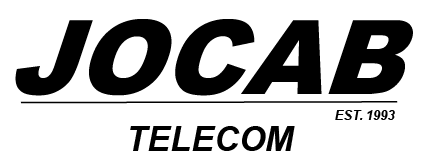Content
Dialectical behavior therapy is usually referred to individuals who suffer from destructive behaviors, mental health complications and chronic suicidal attempts. MBT explicitly focuses on the therapeutic relationship to research and train mentalizing within an ongoing interpersonal process. Instead, DBT rather uses the relationship to support skills coaching.17 MBT is usually conducted over 18-months, while standard DBT is conducted over 12-months. Moreover, MBT and DBT differ regarding their theoretical basis and the postulated “core” of BPD. If no secure attachments can be built, the mentalizing capacities are affected, and PD-related difficulties result as distinct internalized and externalized features. Mentalization, however, means the capacity to implicitly and explicitly make sense of subjective states and mental processes of oneself and others. The therapeutic relationship is used to study and train mentalizing of interpersonal processes.
It aims to treat people who see little or no improvement with other therapy models. This treatment focuses on problem solving and acceptance-based strategies. The term dialectical refers to the processes that bring opposite concepts together such as change and acceptance. Colleen A. Sloan, PhD is a clinical psychologist at VA Boston Healthcare System and Assistant Professor of Psychiatry at Boston University School of Medicine. Dr. Sloan is involved both locally and nationally in education, training, and consultation in sexual and gender minority health. She has expertise in treatment for trauma-related problems and emotion dysregulation including Prolonged Exposure and Dialectical Behavior Therapy. Her research interests involve SGM health disparities and the utilization and modification of evidence-based psychotherapies, particularly trauma-focused treatments, when working with SGM clients.
Skills Training
DBT helps patients find ways to accept themselves, feel safe, and manage their emotions to help regulate potentially destructive or harmful behaviors. Motivational enhancement.DBT uses individualized behavioral treatment https://ecosoberhouse.com/ plans to reduce problematic behaviors that might negatively affect quality of life. For example, therapists might use self-monitoring tracking sheets so sessions can be adapted to address the most severe issues first.
- Although 86 percent of DBT participants had stopped bingeing by the end of treatment, this number declined to 56 percent during the six-month follow-up period.
- Dialectical behavior therapy is especially effective for people who have difficulty managing and regulating their emotions.
- On the other hand, DBT is a comprehensive treatment that includes elements of several evidence-based, cognitive-behavioral interventions for other clinical problems.
- Keep reading to learn more about DBT, including the basic components, techniques that are used, if you can do it on your own, and how you can find a therapist who’s trained in DBT therapy techniques.
In addition, research has shown that it is effective in treating a wide range of other disorders such as substance dependence, depression, Dialectical Behavioral Therapy post-traumatic stress disorder , and eating disorders. Dialectical thinking influences many aspects of the therapist’s approach and style.
Dialectical behaviour therapy strategies
The best way to find out if DBT is right for you is to talk with a professional who is trained in the method. They will evaluate your symptoms, treatment history, and therapy goals to see if DBT might be a good fit. Research also suggests that DBT may also be useful in the treatment of children with disruptive mood dysregulation disorder. One important benefit of DBT is the development of mindfulness skills. Some of the strategies and techniques that are used in DBT include the following.
- Actually, it’s almost always used in combination of all three of these forms.
- A therapy technique that works well fordepressionandanxietycan exacerbate eating disorders or personality disorders.
- Substance abuse is common with borderline personality disorder.DBT helps substance abusers with borderline personality disorder but hasn’t proven effective for addiction alone.
- While there are numerous techniques that can be used, a few are more common than others.
These emotions can be difficult to cope with and manage, leading to anxiety and distress. Borderline personality disorder was historically considered something that could not be diagnosed in a person under the age of 18. But many clinicians, including Dr. Emanuele and Dr. Miller, now feel that symptoms of the disorder do develop in some adolescents, and the debilitating roller coaster of extreme emotions that they experience can be effectively treated with DBT. In sum, both methods focus on the treatment of self-harm, impulsiveness and emotional dysregulation. DBT, however, intends to directly modify and prevent such behavior by skills use.
What are the benefits and risks of dialectical behavior therapy (DBT)?
DBT also inculcates distress tolerance, the ability to tolerate negative emotion rather than needing to escape from it or acting in ways that make difficult situations worse. The “D” means “dialectical.” A dialectic is a synthesis or integration of opposites.
Generalization.DBT therapists use various techniques to encourage the transfer of learned skills across all settings. People in therapy may learn to apply what they have learned at home, at school, at work, and in the community. For example, a therapist might ask the person in treatment to talk with a partner about a conflict. The person may use emotion regulation skills before and after the discussion.
Stand-alone apps did not include these features, but included more teaching of specific therapeutic skills. Talkspace articles are written by experienced mental health-wellness contributors; they are grounded in scientific research and evidence-based practices. Articles are extensively reviewed by our team of clinical experts to ensure content is accurate and on par with current industry standards. More specifically, it’s an evidence-based form of the widely-used cognitive behavior therapy . DBT is used in individual therapy, group therapy, and in the growing-in-popularity internet-based online dialectical behavior therapy or phone therapy. Actually, it’s almost always used in combination of all three of these forms.

